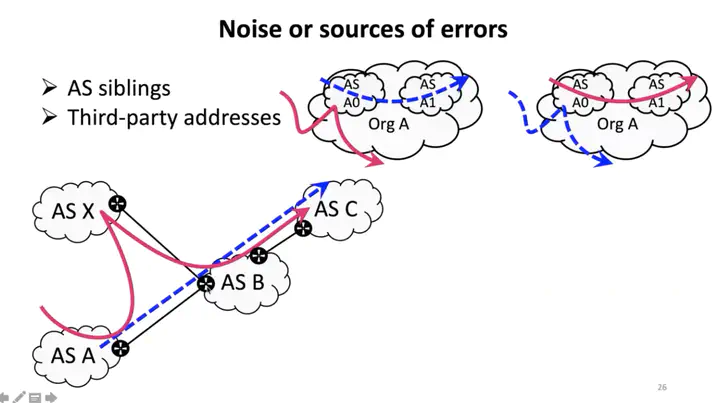Hidden broken pieces in the Internet - BGP lies and forwarding detours

The Internet is an interconnection of independent networks known as Autonomous Systems (ASes). Given that ASes are built on top of hardware and software operated by humans, the Internet is subject to some limitations. For example, humans are error-prone and eventually take arbitrary decisions, enterprises are generally greedy from a revenue point of view. Finally, hardware and circuits may fail, requiring maintenance or replacement. All these factors may lead the Internet to have broken pieces, i.e., malfunctioning components, networks facing limitations and even selfish networks prioritizing their own revenue rather than the better performance of the Internet.
Much of my current work is on measuring the Internet to understand its vulnerabilities. In this talk, I’ll focus on two hidden broken pieces of the Internet. First, I’ll concentrate on the border gateway protocol (BGP), the routing protocol used on the Internet, and study whether ASes carry on BGP lies where the control plane and the data plane differs. After applying a sequence of filters to remove different artifacts, we find cases where the paths indeed mismatch. One cause for such discrepancy is the presence of detours. We then study how traffic flows inside ASes and focus on the detection of forwarding detours. In case of detours, the forwarding routes do not match the best available routes, according to the internal gateway protocol (IGP) in use. We reveal such forwarding detours in multiple ASes.